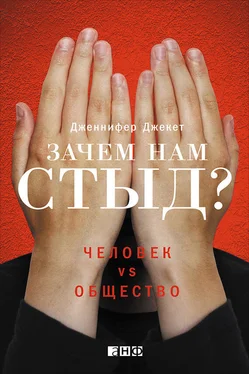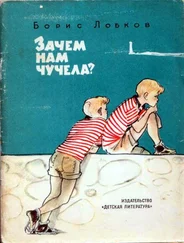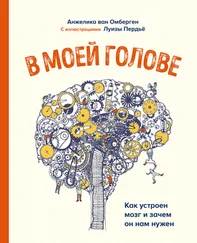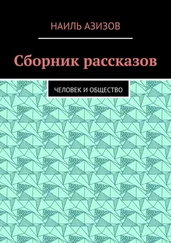Marshall McLuhan, The Gutenberg Galaxy (Toronto: University of Toronto Press, 1962).
Associated Press, «Checking Cheats: China Plans Marriage Database,» The China Post, January 6, 2011, www.chinapost.com.tw/china/national-news/2011/01/06/286518/Checking-cheats.htm.
Milan Kundera, Testaments Betrayed: An Essay in Nine Parts, trans. Linda Asher (New York: Perennial, 1996), 257–258.
Toni Massaro, «The Meanings of Shame: Implications for Legal Reform Psychology,» Psychology, Public Policy, and Law 3, no. 4 (1997): 645.
Laura Holson, «The New Court of Shame Is Online,» New York Times, December 26, 2010.
«Top 500 Delinquent Taxpayers,» State of California Franchise Tax Board, www.ftb.ca.gov/aboutFTB/Delinquent_Taxpayers. shtml.
Thomas Moyher and Robert T. Szyba, «From the Rat to the Mouse: How Secondary Picketing Laws May Apply in the Computer Age,» Hofstra Labor and Employment Law Journal 26 (2008): 271–300.
Mitchell Kapor, «Civil Liberties in Cyberspace: When Does Hacking Turn from an Exercise of Civil Liberties into Crime?» Scientific American, September 1991.
Barb Darrow, «Huffington Post to End Anonymous Comments,» Gigaom, gigaom.com/2013/08/21/huffington-post-to-end-anonymous-comments/.
Michele Ybarra, Marie Diener-West, and Philip J. Leaf, «Examining the Overlap in Internet Harassment and School Bullying: Implications for School Intervention,» Journal of Adolescent Health 41: S42 – S50.
Kipling D. Williams, Christopher K. T. Cheung, and Wilma Choi, «Cyberostracism: Effects of Being Ignored over the Internet,» Journal of Personality and Social Psychology 79, no. 5 (2000): 748–762.
Janis Wolak, Kimberly J. Mitchell, and David Finkelhor, «Does Online Harassment Constitute Bullying? An Exploration of Online Harassment by Known Peers and Online-Only Contacts,» Journal of Adolescent Health 41 (2007): S51 – S58.
Alexander Staller and Paolo Petta, «Introducing Emotions into the Computational Study of Social Norms: A First Evaluation,» Journal of Artificial Societies and Social Simulation 4, no. 1 (2001).
В Великобритании ученый наблюдал за посетителями игротеки с 303 игорными автоматами в течение четырех шестичасовых периодов. Лишь девять игроков проявляли агрессивность. В 38,2 и 37,6 % случаев соответственно наблюдалась вербальная и физическая агрессия, направленная на автомат, в 10,7 % – вербальная агрессия в адрес сотрудников игорной зоны и в 13,5 % – в адрес других игроков. Adrian Parke and Mark Griffiths, «Aggressive Behaviour in Slot Machine Gamblers: A Preliminary Observational Study,» Psychological Reports 95, no. 1 (2004): 109–114.
Richard A. Lanham, The Economics of Attention: Style and Substance in the Age of Information (Chicago: University of Chicago Press, 2007).
Alex Callinicos, Theories and Narratives: Reflections on the Philosophy of History (Durham, N. C.: Duke University Press, 1995).
Frances Wilson, How to Survive the Titanic, or The Sinking of J. Bruce Ismay (London: Bloomsbury, 2011). Это художественно изложенная биография Исмея, дополненная убедительной литературоведческой статьей, свидетельствующей, что Джозеф Конрад в своем четвертом романе «Лорд Джим», изданном в 1900 году, предвосхитил роковую судьбу Исмея.
Norbert L. Kerr, Ann C. Rumble, Ernest S. Park, et al., «How Many Bad Apples Does It Take to Spoil the Whole Barrel? Social Exclusion and Toleration for Bad Apples,» Journal of Experimental Social Psychology 45, no. 4 (2009): 603–613.
Redouan Bshary, «Biting Cleaner Fish Use Altruism to Deceive Image-Scoring Client Reef Fish,» Proceedings of the Royal Society London B 269, no. 1505 (2002): 2087–2093.
Adam Waytz and Liane Young, «The Group Member Mind Tradeoff: Attributing Minds to Groups Versus Group Members,» Psychological Science 23, no. 1 (2012), 77–85.
Milton Friedman, «The Social Responsibility of Business Is to Increase Its Profits,» New York Times Magazine, September 13, 1970.
Alan G. Sanfey, James K. Rilling, Jessica A. Aronson, et al., «The Neural Basis of Economic Decision-Making in the Ultimatum Game,» Science 300, no. 5626 (2003): 1755–1758. См. также: James K. Rilling, Alan G. Sanfey, Jessica A. Aronson, et al., «The Neural Correlates of Theory of Mind Within Interpersonal Interactions,» NeuroImage 22, no. 4 (2004): 1694–1703.
Mascha van't Wout, René S. Kahn, Alan G. Sanfey, and André Aleman, «Affective State and Decision-Making in the Ultimatum Game,» Experimental Brain Research 169 (2006): 564–568.
Olwen A. Bedford, «The Individual Experience of Guilt and Shame in Chinese Culture,» Culture & Psychology 10, no. 1 (2004): 29–52.
Kalvero Oberg, «Crime and Punishment in Tlingit Society,» American Anthropologist 36, no. 2 (1934): 145–156.
Michael Grabell and Sebastian Jones, «Off the Radar: Private Planes Hidden from Public View,» ProPublica.
Jennifer L. Jacquet and Daniel Pauly, «Trade Secrets: Renaming and Mislabeling Seafood,» Marine Policy 32 (2008): 309–318.
Graeme Wood, «Scrubbed,» New York Magazine, June 16, 2013.
Seshadri Tirunillai and Gerard J. Tellis, «Does Chatter Really Matter? Dynamics of User-Generated Content and Stock Performance,» Marketing Science 31, no. 2 (2012): 198–215.
Toni Massaro, «Shame, Culture, and American Criminal Law,» Michigan Law Review 89, no. 7 (1991): 1880–1944.
Aldo Leopold, «On a Monument to the Pigeon,» написано в 1947 году и опубликовано в A Sand County Almanac (London: Oxford University Press, 1949).
Kalvero Oberg, «Crime and Punishment in Tlingit Society,» American Anthropologist 36, no. 2 (1934): 145–156.
Конец ознакомительного отрывка
Купить книгу












